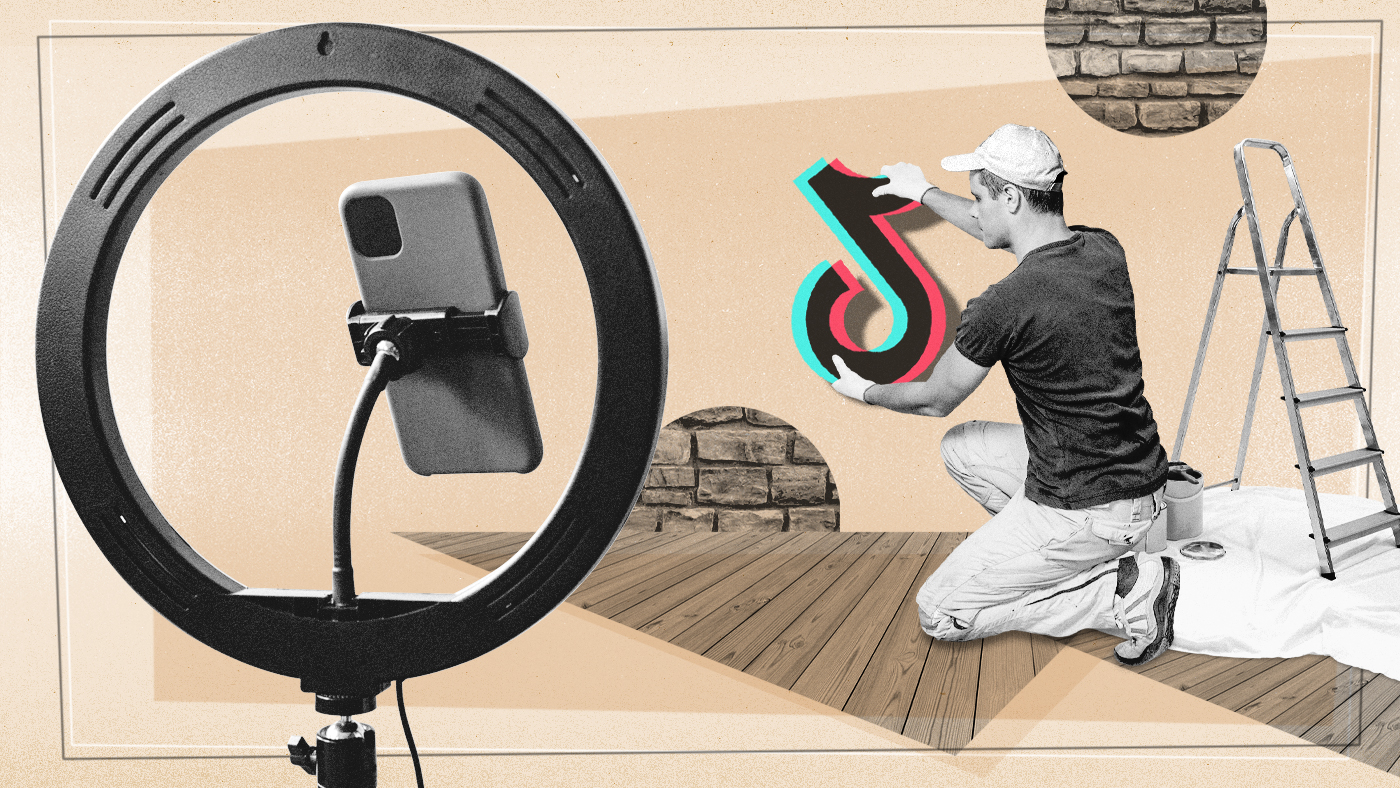#PropertyTok: the surprising rise of the landlord influencer
New subgenre of social media content promises financial freedom but at what cost?

A free daily email with the biggest news stories of the day – and the best features from TheWeek.com
You are now subscribed
Your newsletter sign-up was successful
So-called landlord influencers are promoting the big-money profits to be made from renting out homes on a new subgenre of TikTok viewed by millions worldwide.
Videos posted with the hashtag #PropertyTok feature landlords “bragging about price gouging homes they bought for cheap” and “charging often quadruple the monthly mortgage in rent”, said Sarah Manavis on the i news site. But while the TikTok stars are raking in cash and “huge followings” by “pushing landlordism and property portfolios as aspirational”, many of their followers are “being priced out of ever owning a home”.
‘Galling and perversely addictive’
Some of the landlord influencers “present themselves as gurus who preach the virtues of wealth creation and ‘passive income’ in expensive training courses”, said The Guardian’s Simon Usborne. In the world of #PropertyTok, landlordism is “no longer seen as the preserve of moneyed middle-agers with half an eye on retirement”, but rather as “a lifestyle and route to ‘financial freedom’ for young people who might otherwise feel starved of opportunity”.
The Week
Escape your echo chamber. Get the facts behind the news, plus analysis from multiple perspectives.

Sign up for The Week's Free Newsletters
From our morning news briefing to a weekly Good News Newsletter, get the best of The Week delivered directly to your inbox.
From our morning news briefing to a weekly Good News Newsletter, get the best of The Week delivered directly to your inbox.
Among the models of property ownership promoted by landlord influencers is houses in multiple occupation (HMOs) and a version of subletting known as “rent to rent”, aka Rent2Rent.
Critics argue that promoting these models can have a harmful impact on not only renters, but also the reputation of landlords as a whole. “Landlords are not a universally well-perceived group in the first place,” said Chris Norris, policy director at the National Residential Landlords Association, told the paper. “And I think what a lot of this content does is highlights the excesses.”
Part of what makes #PropertyTok videos “both so galling and perversely addictive”, said Vice magazine’s Polly Smythe, is that these videos “force you to witness the hubristic glee of the landlord, as they dance to songs like No Money or Moving On Up”.
“It’s also a consequence of the language of the videos, which has a knack for disappearing tenants and their inconvenient humanity,” added Smythe, who pointed to phrases such as “already tenanted” and “owner plans on refinancing, renting out and going again”. That “real people’s lives are at stake” is barely acknowledged.
A free daily email with the biggest news stories of the day – and the best features from TheWeek.com
‘Liberating to a lot of people’
According to Dan Wilson Craw, deputy director at campaign group Generation Rent, “the big problem generally is the economy sees property as an economic function and as something that inevitably rises in value”. This trend for treating property as a “fashionable investment option” is pricing out people who need a place to live, he told Input magazine.
Yet for others who are “trying to find steady work in the midst of a recession”, wrote Sarah Manavis for The New Statesman, #PropertyTok offers an appealing “fantasy where they have the disposable income, time and energy to gut and refinish an abandoned building while still paying for their own home”.
Landlord influencer and coach Samuel Leeds – who charges up to £12,000 for 12 months of rent-to-rent training – told The Guardian that he provides a message that is “quite liberating to a lot of people who are earning the minimum wage and struggling with the cost-of-living crisis”.
“My gift, without being arrogant, is that I can make complicated things pretty simple,” said Leeds, who has posted hundreds of videos, with titles such as “23K a Month at 23”, that have had almost 40m views in total.
Despite promises of big profits, said the paper, many influencers “are anxious to challenge perceptions of landlords as agents of avarice who hike rents, skimp on maintenance and drive up house prices”.
“People think that because there are landlords out there, they are being pushed away from the housing market,” said Rick Gannon, a former policeman who now rents a reported £7.5m worth of property to a total 150 tenants. But “if we look a bit deeper into it, it’s probably not the case”, he told Input magazine.“It’s a lot more involved than that as to why people can’t get onto the housing ladder.”
All the same, said Vice magazine’s Smythe, “watching what looks like just another relatable TikTok” only to discover it’s yet another property-investment promo is “like biting into a doughnut to find it’s filled with pus instead of custard”.
Jamie Timson is the UK news editor, curating The Week UK's daily morning newsletter and setting the agenda for the day's news output. He was first a member of the team from 2015 to 2019, progressing from intern to senior staff writer, and then rejoined in September 2022. As a founding panellist on “The Week Unwrapped” podcast, he has discussed politics, foreign affairs and conspiracy theories, sometimes separately, sometimes all at once. In between working at The Week, Jamie was a senior press officer at the Department for Transport, with a penchant for crisis communications, working on Brexit, the response to Covid-19 and HS2, among others.